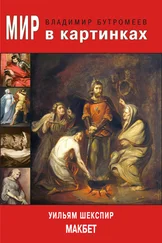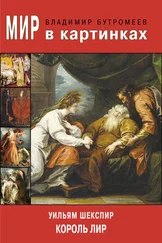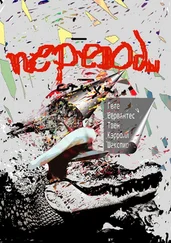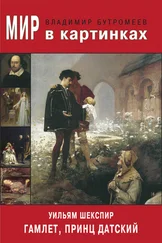Уильям Шекспир - Love's Labour's Lost
Здесь есть возможность читать онлайн «Уильям Шекспир - Love's Labour's Lost» — ознакомительный отрывок электронной книги совершенно бесплатно, а после прочтения отрывка купить полную версию. В некоторых случаях можно слушать аудио, скачать через торрент в формате fb2 и присутствует краткое содержание. Издательство: Иностранный паблик, Жанр: Европейская старинная литература, Драматургия, foreign_dramaturgy, на английском языке. Описание произведения, (предисловие) а так же отзывы посетителей доступны на портале библиотеки ЛибКат.
- Название:Love's Labour's Lost
- Автор:
- Издательство:Иностранный паблик
- Жанр:
- Год:неизвестен
- ISBN:нет данных
- Рейтинг книги:3 / 5. Голосов: 1
-
Избранное:Добавить в избранное
- Отзывы:
-
Ваша оценка:
- 60
- 1
- 2
- 3
- 4
- 5
Love's Labour's Lost: краткое содержание, описание и аннотация
Предлагаем к чтению аннотацию, описание, краткое содержание или предисловие (зависит от того, что написал сам автор книги «Love's Labour's Lost»). Если вы не нашли необходимую информацию о книге — напишите в комментариях, мы постараемся отыскать её.
Love's Labour's Lost — читать онлайн ознакомительный отрывок
Ниже представлен текст книги, разбитый по страницам. Система сохранения места последней прочитанной страницы, позволяет с удобством читать онлайн бесплатно книгу «Love's Labour's Lost», без необходимости каждый раз заново искать на чём Вы остановились. Поставьте закладку, и сможете в любой момент перейти на страницу, на которой закончили чтение.
Интервал:
Закладка:
William Shakespeare
Love's Labour's Lost
FERDINAND, King of Navarre
BEROWNE, lord attending on the King
LONGAVILLE, " " " " "
DUMAIN, " " " " "
BOYET, lord attending on the Princess of France
MARCADE, " " " " " " "
DON ADRIANO DE ARMADO, fantastical Spaniard
SIR NATHANIEL, a curate
HOLOFERNES, a schoolmaster
DULL, a constable
COSTARD, a clown
MOTH, page to Armado
A FORESTER
THE PRINCESS OF FRANCE
ROSALINE, lady attending on the Princess
MARIA, " " " " "
KATHARINE, lady attending on the Princess
JAQUENETTA, a country wench
Lords, Attendants, etc.
SCENE: Navarre
ACT I. SCENE I. Navarre. The King's park
Enter the King, BEROWNE, LONGAVILLE, and DUMAIN
KING. Let fame, that all hunt after in their lives,
Live regist'red upon our brazen tombs,
And then grace us in the disgrace of death;
When, spite of cormorant devouring Time,
Th' endeavour of this present breath may buy
That honour which shall bate his scythe's keen edge,
And make us heirs of all eternity.
Therefore, brave conquerors- for so you are
That war against your own affections
And the huge army of the world's desires-
Our late edict shall strongly stand in force:
Navarre shall be the wonder of the world;
Our court shall be a little Academe,
Still and contemplative in living art.
You three, Berowne, Dumain, and Longaville,
Have sworn for three years' term to live with me
My fellow-scholars, and to keep those statutes
That are recorded in this schedule here.
Your oaths are pass'd; and now subscribe your names,
That his own hand may strike his honour down
That violates the smallest branch herein.
If you are arm'd to do as sworn to do,
Subscribe to your deep oaths, and keep it too.
LONGAVILLE. I am resolv'd; 'tis but a three years' fast.
The mind shall banquet, though the body pine.
Fat paunches have lean pates; and dainty bits
Make rich the ribs, but bankrupt quite the wits.
DUMAIN. My loving lord, Dumain is mortified.
The grosser manner of these world's delights
He throws upon the gross world's baser slaves;
To love, to wealth, to pomp, I pine and die,
With all these living in philosophy.
BEROWNE. I can but say their protestation over;
So much, dear liege, I have already sworn,
That is, to live and study here three years.
But there are other strict observances,
As: not to see a woman in that term,
Which I hope well is not enrolled there;
And one day in a week to touch no food,
And but one meal on every day beside,
The which I hope is not enrolled there;
And then to sleep but three hours in the night
And not be seen to wink of all the day-
When I was wont to think no harm all night,
And make a dark night too of half the day-
Which I hope well is not enrolled there.
O, these are barren tasks, too hard to keep,
Not to see ladies, study, fast, not sleep!
KING. Your oath is pass'd to pass away from these.
BEROWNE. Let me say no, my liege, an if you please:
I only swore to study with your Grace,
And stay here in your court for three years' space.
LONGAVILLE. You swore to that, Berowne, and to the rest.
BEROWNE. By yea and nay, sir, then I swore in jest.
What is the end of study, let me know.
KING. Why, that to know which else we should not know.
BEROWNE. Things hid and barr'd, you mean, from common sense?
KING. Ay, that is study's god-like recompense.
BEROWNE. Come on, then; I will swear to study so,
To know the thing I am forbid to know,
As thus: to study where I well may dine,
When I to feast expressly am forbid;
Or study where to meet some mistress fine,
When mistresses from common sense are hid;
Or, having sworn too hard-a-keeping oath,
Study to break it, and not break my troth.
If study's gain be thus, and this be so,
Study knows that which yet it doth not know.
Swear me to this, and I will ne'er say no.
KING. These be the stops that hinder study quite,
And train our intellects to vain delight.
BEROWNE. Why, all delights are vain; but that most vain
Which, with pain purchas'd, doth inherit pain,
As painfully to pore upon a book
To seek the light of truth; while truth the while
Doth falsely blind the eyesight of his look.
Light, seeking light, doth light of light beguile;
So, ere you find where light in darkness lies,
Your light grows dark by losing of your eyes.
Study me how to please the eye indeed,
By fixing it upon a fairer eye;
Who dazzling so, that eye shall be his heed,
And give him light that it was blinded by.
Study is like the heaven's glorious sun,
That will not be deep-search'd with saucy looks;
Small have continual plodders ever won,
Save base authority from others' books.
These earthly godfathers of heaven's lights
That give a name to every fixed star
Have no more profit of their shining nights
Than those that walk and wot not what they are.
Too much to know is to know nought but fame;
And every godfather can give a name.
KING. How well he's read, to reason against reading!
DUMAIN. Proceeded well, to stop all good proceeding!
LONGAVILLE. He weeds the corn, and still lets grow the weeding.
BEROWNE. The spring is near, when green geese are a-breeding.
DUMAIN. How follows that?
BEROWNE. Fit in his place and time.
DUMAIN. In reason nothing.
BEROWNE. Something then in rhyme.
LONGAVILLE. Berowne is like an envious sneaping frost
That bites the first-born infants of the spring.
BEROWNE. Well, say I am; why should proud summer boast
Before the birds have any cause to sing?
Why should I joy in any abortive birth?
At Christmas I no more desire a rose
Than wish a snow in May's new-fangled shows;
But like of each thing that in season grows;
So you, to study now it is too late,
Climb o'er the house to unlock the little gate.
KING. Well, sit out; go home, Berowne; adieu.
BEROWNE. No, my good lord; I have sworn to stay with you;
And though I have for barbarism spoke more
Than for that angel knowledge you can say,
Yet confident I'll keep what I have swore,
And bide the penance of each three years' day.
Give me the paper; let me read the same;
And to the strictest decrees I'll write my name.
KING. How well this yielding rescues thee from shame!
BEROWNE. [Reads] 'Item. That no woman shall come within a mile
of
my court'– Hath this been proclaimed?
LONGAVILLE. Four days ago.
BEROWNE. Let's see the penalty. [Reads] '-on pain of losing her
tongue.' Who devis'd this penalty?
LONGAVILLE. Marry, that did I.
BEROWNE. Sweet lord, and why?
LONGAVILLE. To fright them hence with that dread penalty.
BEROWNE. A dangerous law against gentility.
[Reads] 'Item. If any man be seen to talk with a woman within
the term of three years, he shall endure such public shame as
the
rest of the court can possibly devise.'
This article, my liege, yourself must break;
For well you know here comes in embassy
The French king's daughter, with yourself to speak-
A mild of grace and complete majesty-
About surrender up of Aquitaine
To her decrepit, sick, and bedrid father;
Therefore this article is made in vain,
Or vainly comes th' admired princess hither.
KING. What say you, lords? Why, this was quite forgot.
BEROWNE. So study evermore is over-shot.
While it doth study to have what it would,
It doth forget to do the thing it should;
And when it hath the thing it hunteth most,
'Tis won as towns with fire- so won, so lost.
KING. We must of force dispense with this decree;
She must lie here on mere necessity.
BEROWNE. Necessity will make us all forsworn
Интервал:
Закладка:
Похожие книги на «Love's Labour's Lost»
Представляем Вашему вниманию похожие книги на «Love's Labour's Lost» списком для выбора. Мы отобрали схожую по названию и смыслу литературу в надежде предоставить читателям больше вариантов отыскать новые, интересные, ещё непрочитанные произведения.
Обсуждение, отзывы о книге «Love's Labour's Lost» и просто собственные мнения читателей. Оставьте ваши комментарии, напишите, что Вы думаете о произведении, его смысле или главных героях. Укажите что конкретно понравилось, а что нет, и почему Вы так считаете.










